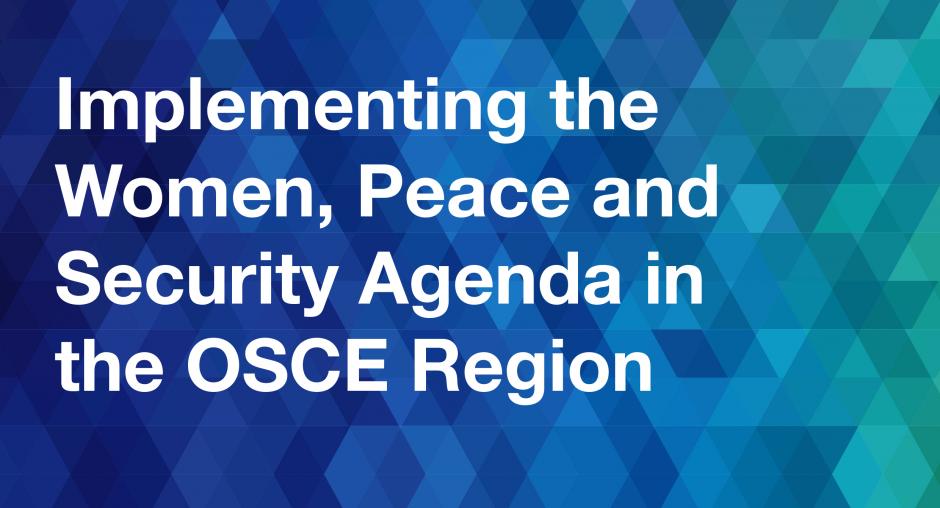Bringing together global agenda on women peace and security and local efforts for its implementation

Collecting and making available sex-disaggregated data and analyses, ensuring financial resources for making the women, peace and security agenda a reality on the ground, as well as building knowledge and skills of local decision-makers and civil society actors are ways for international organizations and donors to contribute to the implementation of women, peace and security (WPS) resolutions beyond national capitals. These were the conclusions reached during the online event held on 1 July 2020.
The event aimed to publicize the findings of the study on Implementing Women, Peace and Security Agenda in the OSCE Region, which was conducted jointly with the London School of Economics and Political Science (LSE) and the OSCE. The webinar was co-hosted by the LSE Centre on Women, Peace and Security, the OSCE Programme for Gender Issues and UN Women. Around 150 participants attended.
The event focused on one of the key research areas: localizing national action plans (NAPs) aimed at implementing UN Security Council resolutions on women, peace and security. Participants debated on the benefits and drawbacks of the six avenues of localization identified in the study. These include the development of local action plans, including locally implementable activities in NAPs, and including WPS activities in local gender equality implementation plans.
“It is good to see that in recent years in many countries, security sector institutions have developed a strong and genuine ownership of women, peace and security action plans, and started to work more closely with civil society groups. This is particularly important in the OSCE region given the OSCE’s role as a regional organization that focuses on comprehensive security,” said Tuula Yrjölä, Director of OSCE Conflict Prevention Centre, in her opening remarks.
The study provides information on progress and trends, as well as challenges in the implementation of the ten United Nations Security Council resolutions on women, peace and security. It examines the national action plans of OSCE participating States, and offers more in-depth information on how these action plans have been put into practice in the countries researched. Five countries were covered: Bosnia and Herzegovina, Kyrgyzstan, Moldova, Serbia, and Ukraine.
Henri Myrttinen, one of the three researchers who conducted the study, highlighted that "the countries covered by the study, but also others in the OSCE region, have been global fore-runners in developing different approaches to the localization of NAPs."
Many speakers pointed to the importance of ensuring that local and national-level action plans are well connected and working towards shared goals. Local action plans can better address the specific security issues in their own context, but issues requiring amendments in legislation can only be addressed at the national level. “In implementing women, peace and security in Bosnia and Herzegovina, we have used a ‘sandwich strategy model’ that takes into consideration both local and national level actors,” said Samra Filipović Hadžiabdić from the Agency for Gender Equality.
This online event also noted that COVID-19 has provided us an opportunity to underline the need to position human security approach and principles to the core of our work on peace and security issues at all levels.
The joint LSE and OSCE study was published earlier this year. It is also available in Russian and Ukrainian.
